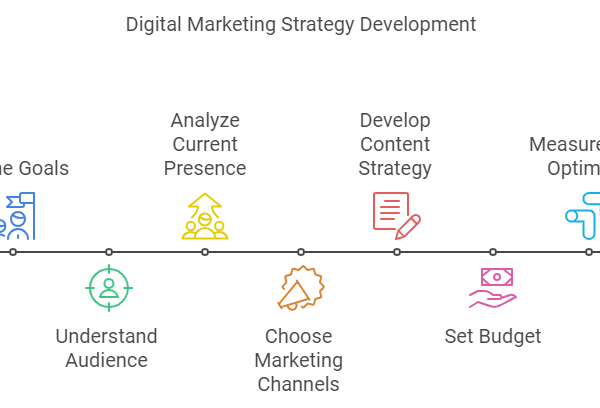
As the job market evolves, the demand for skilled professionals with accredited qualifications is on the rise. For individuals aiming to stand out in competitive fields such as education, engineering, and social care, OTHM offers a range of qualifications that cater to diverse professional needs. This blog explores the various levels of qualifications provided by OTHM, highlighting their significance and benefits for career advancement.
Understanding OTHM Qualifications
OTHM is a UK-based awarding organization recognized for providing high-quality vocational qualifications. These qualifications are designed to meet the needs of employers and learners, ensuring that students acquire the skills and knowledge necessary for their respective industries. From foundational diplomas to advanced teaching qualifications, OTHM offers a comprehensive pathway for professional development.
Level 7 Teaching Qualification: Mastering the Art of Education
Elevating Teaching Standards
The Level 7 Teaching Qualification is tailored for experienced educators seeking to enhance their pedagogical skills and advance their careers. This qualification is equivalent to a master’s degree and focuses on advanced teaching techniques, curriculum development, and educational leadership.
Key Components of the Level 7 Teaching Qualification
- Pedagogical Theories and Practices: In-depth exploration of modern teaching methodologies and their practical application in diverse educational settings.
- Curriculum Design and Assessment: Strategies for creating effective curricula and assessing student performance to ensure optimal learning outcomes.
- Educational Leadership and Management: Training in leadership skills essential for managing educational institutions and driving positive changes in the education sector.
Career Prospects
Graduates with a Level 7 Teaching Qualification can pursue roles such as educational consultants, curriculum developers, and senior teaching positions. This qualification opens doors to leadership roles within schools, colleges, and universities, positioning educators as experts in their field.
Level 3 Engineering Qualification: Building a Strong Foundation
The Importance of Foundational Knowledge
The Level 3 Engineering Qualification is designed for individuals aspiring to start their careers in the engineering sector. This qualification provides a solid foundation in engineering principles, preparing students for further studies or entry-level positions in various engineering fields.
Key Components of the Level 3 Engineering Qualification
- Basic Engineering Concepts: Introduction to fundamental engineering principles, including mechanics, materials science, and electrical circuits.
- Practical Skills Development: Hands-on training in using engineering tools and equipment, fostering practical skills that are essential in the workplace.
- Health and Safety: Understanding the importance of health and safety regulations in engineering environments to ensure a safe working space.
Career Prospects
With a Level 3 Engineering Qualification, individuals can pursue entry-level roles such as engineering technicians, mechanical engineers, and electrical engineers. This qualification also serves as a stepping stone for higher education in engineering disciplines.
Level 3 Diploma in Engineering: Comprehensive Technical Training
Bridging the Gap to Advanced Engineering
The Level 3 Diploma in Engineering offers more specialized training compared to the general Level 3 Engineering Qualification. This diploma is designed to provide students with a deeper understanding of engineering concepts and practical skills, bridging the gap to more advanced studies or professional roles.
Key Components of the Level 3 Diploma in Engineering
- Advanced Technical Knowledge: Detailed study of specific engineering disciplines such as mechanical, electrical, and civil engineering.
- Project-Based Learning: Opportunities to work on real-world engineering projects, applying theoretical knowledge to practical scenarios.
- Industry-Relevant Skills: Training in the latest technologies and methodologies used in the engineering industry, ensuring graduates are well-prepared for the job market.
Career Prospects
Graduates of the Level 3 Diploma in Engineering can pursue technical roles in various engineering sectors, including construction, manufacturing, and telecommunications. This qualification also provides a solid foundation for further education, such as Level 4 and Level 5 engineering qualifications.
Level 6 in Education: Advancing Educational Expertise
Preparing for Leadership in Education
The Level 6 Qualification in Education is designed for educators aiming to take on leadership roles within educational institutions. This qualification emphasizes advanced teaching strategies, educational research, and management skills, preparing educators for senior positions.
Key Components of the Level 6 Qualification in Education
- Advanced Pedagogy: Exploration of cutting-edge teaching methods and their application in different educational contexts.
- Educational Research: Training in conducting educational research to inform teaching practices and policy development.
- Leadership and Management: Development of leadership skills necessary for managing educational programs and institutions.
Career Prospects
With a Level 6 Qualification in Education, educators can advance to roles such as headteachers, department heads, and educational administrators. This qualification also provides a pathway to postgraduate studies in education.
Level 5 Social Care: Enhancing Care and Support Skills
Meeting the Demands of the Social Care Sector
The Level 5 Qualification in Social Care is tailored for individuals working in or aspiring to work in the social care sector. This qualification focuses on developing the skills and knowledge required to provide high-quality care and support to individuals in need.
Key Components of the Level 5 Qualification in Social Care
- Care and Support Techniques: Training in effective care practices and support techniques for working with diverse populations.
- Legislation and Ethics: Understanding the legal and ethical frameworks governing social care practice.
- Management and Leadership: Skills development for managing social care teams and programs, ensuring efficient and effective service delivery.
Career Prospects
Graduates with a Level 5 Qualification in Social Care can pursue roles such as social care managers, senior support workers, and care coordinators. This qualification also serves as a foundation for further studies in social work and related fields.
Conclusion: The Path to Professional Excellence
OTHM qualifications offer a robust pathway for individuals seeking to enhance their skills and advance their careers in education, engineering, and social care. Whether you are starting your career or aiming to take on leadership roles, OTHM provides the necessary training and accreditation to help you achieve your professional goals. By choosing the right qualification, you can unlock new opportunities and make a significant impact in your chosen field.
For more information on OTHM qualifications and how to enroll, visit the OTHM website.











